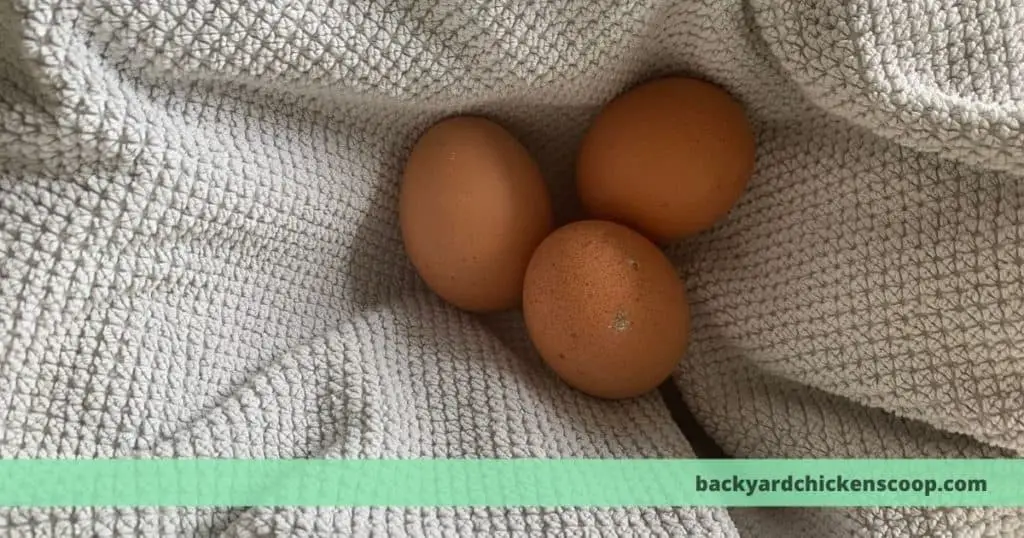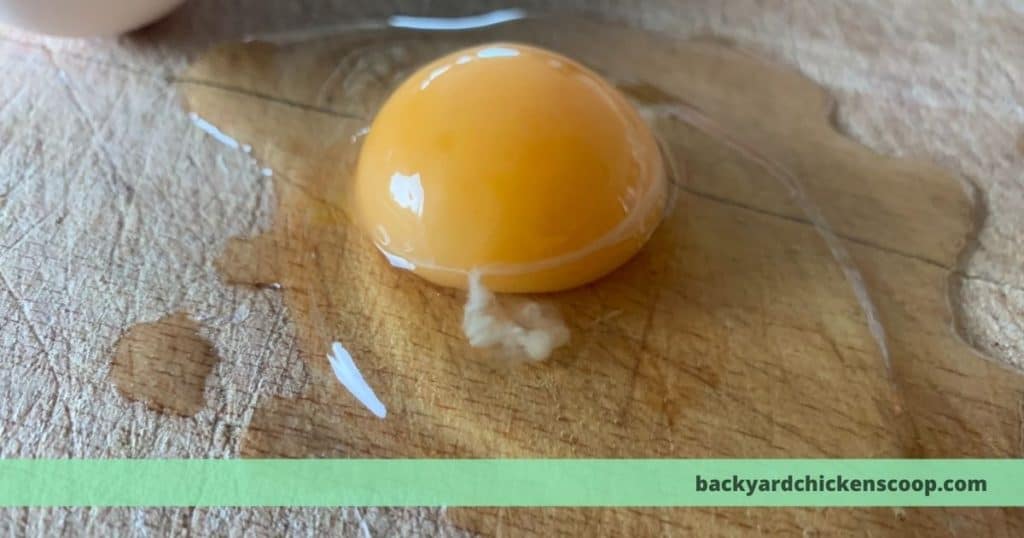Eggs are such an integral part of daily life that there are facilities that focus on mass-producing such a commodity. These recent years and due to the exposed practices of egg producers, there’s a growing concern about the health impact of consuming mass-produced eggs. While most people would say that the jury is still out, there’s already a growing trend of producing eggs from your own backyard.
In this article, you will learn more about backyard chicken eggs and related subjects.
Are eggs from backyard chickens healthier?
First of all, it’s best that we clearly define “backyard chickens”. In this article, the phrase generally means chickens that are grown in the backyard, able to roam with an ample amount of space, preferably exposed to pasture and not meant for mass production of eggs or meat.
Now that’s cleared, eggs from backyard chickens are generally healthier compared according to a 2007 Mother Earth News study.
According to the study, backyard chicken eggs contain lower levels of cholesterol and fat. Also, there are higher levels of Vitamin A, D, E, omega-3’s, and beta carotene.
Some crucial specifics about backyard chicken eggs reported by the study:
- 25% more Vitamin E
- 75% more Beta Carotene
- 20 times more Omega-3 fatty acids
- 1/2 Cholesterol
- Significantly lesser amounts of saturated fat
The study stipulated that one possible reason for the difference is the diet of backyard chickens. If the opportunity presents itself, chickens will consume a wide variety of food like grains, insects, flowers, and grass. Such a diet is rich in omega-3’s and beta carotene, while also being low in saturated fat and cholesterol.
Is it safe to eat eggs from backyard chickens?
The answer to this question is – it depends. Don’t get us wrong. Backyard chicken eggs are safe to eat. However, it’s in the handling that potential issues may occur. If an egg is improperly handled, it can be a carrier of diseases. In most cases, Salmonella infection is your biggest concern.
There are different types of Salmonella, and most of them grow in the chicken’s intestinal tract. Humans can get salmonella infection through direct or indirect contact of faeces from a chicken with Salmonella. The biggest concern is when the infected chicken faeces may come in contact with eggs, which may cause salmonella infection when consumed.
You might be thinking of “I’ll just clean the eggs, and it should be okay.” Well, the answer might be trickier than that.
When chickens lay eggs, the mother wraps the eggs with a gelatinous layer called “bloom.” This layer dries up eventually. The bloom covers the egg pores and prevents bacteria from entering the egg. When you wash the chicken egg, it removes this layer, and that means you could be exposing the eggs to harmful microorganisms.
On the other hand, washing the eggs has its advantages, which is why it’s an industry standard. The thing with the bloom is it stops protecting the egg once the shell is cracked.
If you prefer washing the eggs, then you should use hot water that’s more than 90 degrees Fahrenheit. The hot water will cause the egg to expand, pushing the dirt and other foreign materials away from the pores of the shell. After washing the egg, you must dry it as soon as possible and store it in a refrigerator. It’s not advisable to leave the eggs at room temperature as it can degrade the egg’s quality by as much as one grade per 24 hours.
As mentioned above, things can get tricky with egg handling. Perhaps, and this is only a suggestion, the best way to do it is to wash the eggs that seem to exhibit cracks. For intact ones, you can store them in the refrigerator directly.
Whether you wash the eggs or not, the best defence is to cook the eggs thoroughly. Salmonella and other harmful microorganisms can’t survive in high temperatures.

Are yard eggs better for you?
The best way to answer this question is to encourage you to look at the life of a yard chicken and a mass-produced chicken.
Chickens with the sole purpose of mass-producing eggs are typically housed indoors and rarely get exposed to sunlight as a means of protecting them from diseases. Keep in mind that these chickens are living side-by-side, and that means if one is infected with a disease, it can quickly spread throughout the facility. Thus, keeping them indoors away from possible contaminants is a means of protecting the “investment.”
However, the downside is that it’s normal for chickens to be exposed to sunlight. Without it, it will affect biology in one way or another, and this may affect the quality of the eggs.
Another issue is the cramped spaces. It’s normal business practice for chickens to be packed together as much as possible as a way of saving space. More chickens per square foot mean more profit. The problem with this is that the chickens are living a sedentary lifestyle, and that may also affect the egg’s quality negatively. Keep in mind that it’s normal for chickens to roam around. That’s what they have been doing for thousands of years.
This article is not saying that all chicken egg producers practice the conditions mentioned above — nevertheless, it’s still a common practice.
Yard chickens live a different life. Typically, they get to roam around and get their exercise. They are exposed to sunlight and outdoors. Their diet is close to what’s normal rather than being fed with foods with hormones to increase production. Ultimately, yard chickens are closer to what’s “normal,” and it’s safe to assume that yard eggs are safer.

Why do fresh eggs taste different?
This one is an easy question to answer, and it all boils down to basic biology. Generally, anything that is biologically “alive” will naturally die out. How fast or slow something dies depends on a multitude of factors.
Given enough time, an egg will eventually rot. And, it doesn’t take a genius to realize that anything rotten rarely tastes good. Think of it as a spectrum. On one side is the eggs that have just been freshly laid. On the other side of the spectrum is rotten eggs.
As time moves forward, the cells and nutrients of the freshly laid egg will degrade or die more and more. As this continues, it’s only a matter of time before it becomes fully rotten and inedible.
In other words, fresh eggs taste different, and generally better, because it experienced fewer amounts of degradation.


